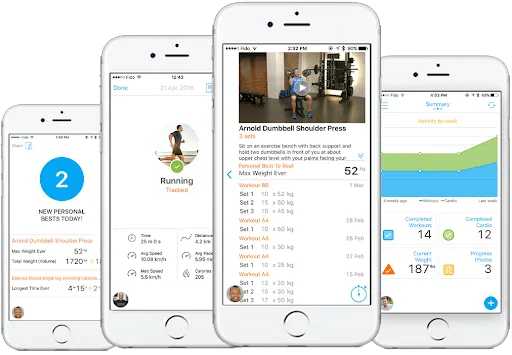
TRAIN HARD AND RECOVER SMART
MISSION
At Train Hard and Recover Smart, our mission is to empower individuals to optimize their health and well-being through a balanced approach to fitness, nutrition, and self-care. We believe in the power of hard work and dedication, coupled with intelligent recovery strategies, to help our audience reach their fullest potential. Through engaging content, expert advice, and practical tips, we aim to educate, inspire, and support our community in their journey towards improved physical and mental performance. With a focus on sustainable practices and a commitment to individual needs, we strive to create a positive and inclusive environment where everyone can thrive and achieve their goals. Together, let's train hard, recover smart, and transform lives.
VISSION
Empowering people over 30 to redefine and rediscover their prime fitness, we envision a community where strength transcends physical boundaries, resilience becomes a mindset, and each individual, armed with knowledge and support, achieves their peak vitality. Together, we are forging a path to holistic well-being, celebrating progress, and inspiring a lifelong commitment to prime fitness.
SERVICES

Nutritional Coaching
Nutrition coaches work with the general population to facilitate the inclusion of healthy eating behaviors and empower their clients to take responsibility for their own health,” says Sutton. “They are mentors and leaders who guide their clients toward a healthier lifestyle.

Online Coaching
Online coaching is the opportunity to receive professional support through a computer or mobile device—a tablet, iPad, or smartphone—that has an internet (online) connection .

ABOUT ME
THOMAS FLANAGAN
Personal Trainer and Nutritional Coach
Thomas Flanagan specializes in helping people veterans, busy professionals and people over 30 regain their prime through tailored fitness and nutrition programs. With over ten years of experience and a comprehensive skill set, Thomas is dedicated to transforming lives.
Certifications and Expertise:
- NASM Certifications: Fitness Nutrition Specialist, Weight Loss Specialist, Behavior Change Specialist, MMA Conditioning Specialist, Performance Enhancement Specialist
- Precision Nutrition: Level 1 Certified
- RockTape: FMT Basic and Performance Taping, FMT Blades and Blades Advanced
- Education: Pursuing Bachelor's degree in Exercise Science at Bryan University
Thomas also brings a unique perspective from his 20-year military career, retiring as a Chief Warrant Officer - 2 from the US Army in 2016.
Passionate About Your Goals:
Thomas is committed to helping you achieve what might seem unattainable. He designs personalized fitness programs to meet your specific needs, empowering you to reach new heights.
Leading by Example:
Thomas has personally transformed his life, losing 58 pounds in the last ten months while developing the Vitality Reset Program. His journey demonstrates his commitment to achieving and maintaining peak fitness.
Why Choose Thomas?
- Dedicated and experienced in helping people over 30
- Comprehensive knowledge and wide range of certifications
- Military discipline and commitment
- Genuine passion for empowering others
If you’re ready to reclaim your prime, Thomas Flanagan is the trainer you need. Join the Vitality Reset Program and unlock your full potential.

Nutrition Revolution: Master Your Plate for Life
Nutritional Revolution: Master Your Plate for Life" is your complete guide to mastering nutrition, setting fitness goals, and achieving sustainable success. Whether you're aiming for weight loss, muscle gain, or maintenance, this book provides actionable steps, and personalized meal plans to thrive.
FITNESS TIPS
Tips #1
Make your appointment with yourself to workout.
Tips #2
Find a plan or coach to keep you accountable and on track with your goals.
Tips #3
Be consistent with your workouts each week and stick to the 80/20 rule with your nutrition plan.
WORKOUTS
Here are some sample exercises for some body parts with a rep and set count.
Give these a try during your next trip to the gym. If you superset them, put two of them together with no rest between exercises, then rest about 45 to 60 seconds between sets.
Everyday work to be better than you were yesterday.
CHEST WORKOUT
Barbell Bench Press • 4 sets of 8 reps
SHOULDER WORKOUT
Seated Dumbbell Press • 4 sets of 10 reps
BICEPS WORKOUT
Barbell Bicep Curls • 3 sets of 10 reps
BACK WORKOUT
Lat-pulldowns • 4 sets of 10 reps
LEGS WORKOUT
Leg Extensions • 4 sets of 10 reps
TRICEP WORKOUT
Rope Pushdowns • 3 sets of 15 reps